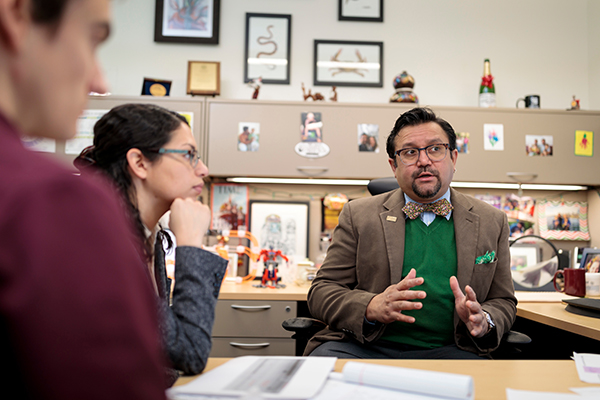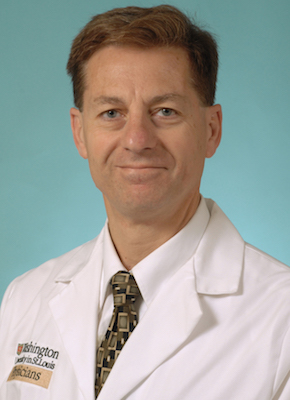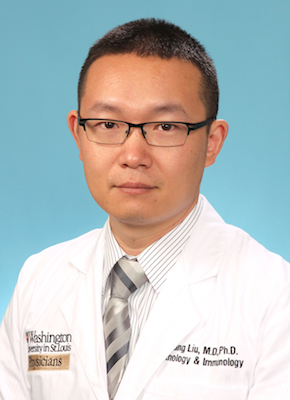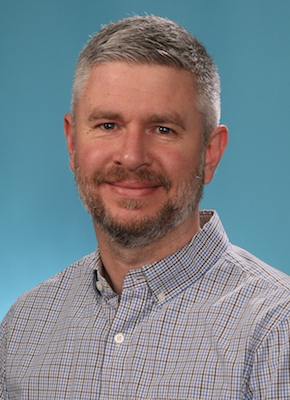
Laboratory and Genomic Medicine
Overview
Division Co-Chief: Gautam Dantas, PhD
Division Co-Chief: Ann M. Gronowski, PhD
Formed in 1969, the Division of Laboratory and Genomic Medicine has a long and rich history of excellence in research, education, and clinical service. The Division employs approximately 165 people, including more than 30 faculty and 25 residents and fellows.
The Division has a robust, inclusive community of basic, translational, and clinical scientists with a long history of leading pioneering and highly impactful research. Current areas of research expertise include antimicrobial resistance, biomarker discovery, bioinformatics, clinical microbiology, comparative pathogen genomics, diagnostic test development, DNA damage repair, epigenetic regulation in cancer, host-microbiome dynamics, host-pathogen interactions, immunometabolism, machine-learning, microbial pathogenesis, mitochondria biology, neurodegeneration, and probiotic engineering. Notable examples of internationally recognized researchers from the division include Dr. Jack Ladenson, who developed groundbreaking laboratory tests for the diagnosis of heart attacks and other conditions, and Dr. Jeff Gordon, who has pioneered research in defining the role of the gut microbiome in the pathogenesis of childhood undernutrition.
The Division is committed to training the next generations of laboratory physicians and scientists by providing a robust range of educational offerings. Division faculty are active members and leaders of Washington University graduate, medical, and post-doctoral training programs, including Medical-Scientist (MSTP) and Physician-Scientist (PSTP) training programs, as well as the Clinical Pathology residency and fellowships in Clinical Chemistry, Transfusion Medicine, and Medical and Public Health Microbiology. Alumni of our training programs have achieved leadership roles in academia, industry, and clinical practice across the world.
In support of the clinical mission of WashU Medicine, more than 20 clinical LGM faculty provide medical director services to the BJC system hospital laboratories that process approximately 5.5 million tests per year. These faculty actively engage in clinical pathology with subspecialty expertise in chemistry, toxicology, pediatrics, blood banking, transfusion medicine, cellular therapy, microbiology, molecular diagnostics, histocompatibility, laboratory hematology, coagulation, and informatics.

Faculty

George J. Despotis, MD
Associate Professor, Pathology & Immunology
Contact
- Email: gjdespotis@wustl.edu
Division: Laboratory & Genomic Medicine


Scott Handley, PhD
Professor, Pathology & Immunology
Contact
- Email: shandley@wustl.edu
Division: Laboratory & Genomic Medicine
Lab Phone: 314-479-3830
Office Location: CSRB, Room 8851
Upcoming Events
Latest News
Message from the Head of Department
Probiotic delivers anticancer drug to the gut (Links to an external site)

Job Opportunities
We are looking for passionate individuals who are eager to push the boundaries of scientific discovery and advance the frontiers of knowledge. Here, your work will intersect with cutting-edge research and transformative healthcare, offering a career path filled with growth and learning.
